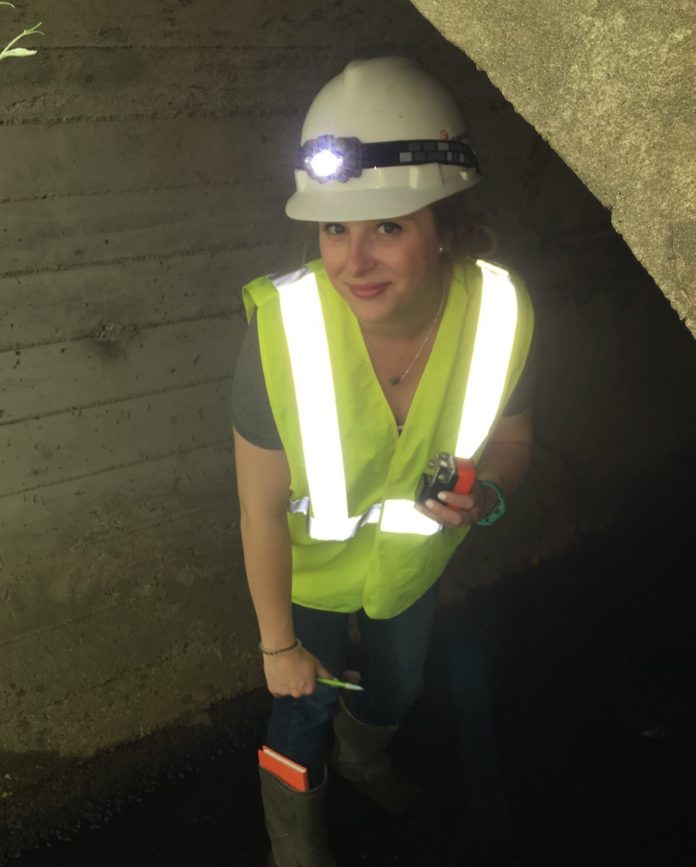
SOUTH KINGSTOWN – Danielle Goudreau, a University of Rhode Island graduate student in engineering, won first place from the American Society of Civil Engineers for her research paper on the New Bedford hurricane barrier and how it will not protect the Massachusetts coast from rising sea levels and hurricane surges.
Goudreau’s paper, “Investigation of Combined Storm Surge Inundation and Sea Level Rise to the New Bedford Hurricane Barrier,’’was one of four papers selected from around the country to be presented at the conference. Based on participant vote, Goudreau, 23, won first place and was honored during the society’s Coasts, Oceans, Ports and Rivers Institute conference in New Orleans June 12 through 15.
“I still can’t believe it,’’ the Townsend, Mass., resident said. “It was an honor to be recognized for the research I’ve been doing. It also reflects on how much I’ve learned through my years as an engineering student at URI.’’
The URI graduate student is enrolled in the university’s five-year accelerated engineering program. She is studying civil engineering and intends to graduate in August with a master’s degree. She interned at Pare Corp., a civil engineering consulting firm in Foxborough, Mass., and the firm hired her as a full-time engineer last month.
Using computer-based programs, Goudreau’s research on the 9,100-foot barrier, which stretches from across the Port of New Bedford on the northwest side of Buzzards Bay to the shores of Fairhaven, Mass., showed it would not prevent flooding during intense storms with expected sea level rise. The resulting damages to houses, business and roads would be significant, according to the URI graduate student.
Goudreau said her findings are important, especially for Massachusetts, because the state does not have any sources which provide a comprehensive analysis of hurricane storm surges’ impact with predicted sea level rise.
“The results of my project indicate the importance of resiliency to be included in the design for new coastal stabilization structures,’’ Goudreau said. “While the next extreme storm event can’t be accurately predicted, the use of my model for the barrier indicates there are many storm scenarios that could cause major damage by overtopping the barrier.”











